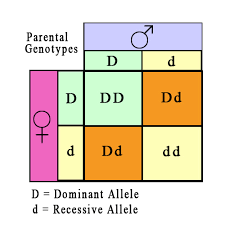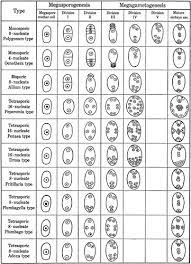Crossing Over in Drosophila
Crossing Over in Drosophila
The phenomenon of crossing over is well illustrated in Drosophila
melanogaster. When grey long Drosophila is crossed with a black vestigial, the
F, hybrid is grey long. When female flies of F, generation are back crossed
with double recessive male, four types of offspring are produced.
Among the four types of offspring, two types - black
vestigial and grey long- are just like the parents and they are known as parental
combinations. Among the F1, about 41.5% of flies are like the dominant parent
and another 41.5% are like the recessive parent.
The other two types grey vestigial and black long are
different from their parents genotypically and phenotypically, and they are
known as non-parental combinations. The non-parental combinations of F, flies
include 8.5% grey vestigial and 8.5% black long.
The F, female hybrid produces four towards each other and
come to lie side-by-side. This phenomenon of pairing of homologous chromosomes
is 4 kinds of eggs. Two types of eggs carry the linked genes in original combination.
But the other two types of eggs carry the genes in a new combination. If the
law of independent assortment of genes takes place in the above cross, all the
F, offspring are in equal numbers (1:1:1:1) as a result of back cross.
The actual results of the above cross indicates that the law
of independent assortment is not operating in these crosses.
When F1 female is test crossed with double recessive fly. In
the F2, 4 types of offspring are produced in the ratio 41.5%: 8.5 8.5%:41.5%
Grey long GL/gl-41.5%
Grey Vestigial Gl/gl-8.5%
Black Long gl/gl -8.5%
Black vestigial gl/gl-41.5%
Here the parental combinations grey long and black vestigial are very large (83%). They are due to linkage. The new combinations are less (17%). They are due to crossing over in the F1 female fly. In Drosophila, F1 male, there is no crossing over as far as these two characters are concerned. So here the linkage is complete. In F1 female, there is linkage as well as crossing over. This is called incomplete linkage.




Comments